What’s New with Data Sharing and Collaboration - Summer 2025
Latest innovations from Databricks that make open sharing and collaboration easier than ever—across any cloud, any format, and any partner
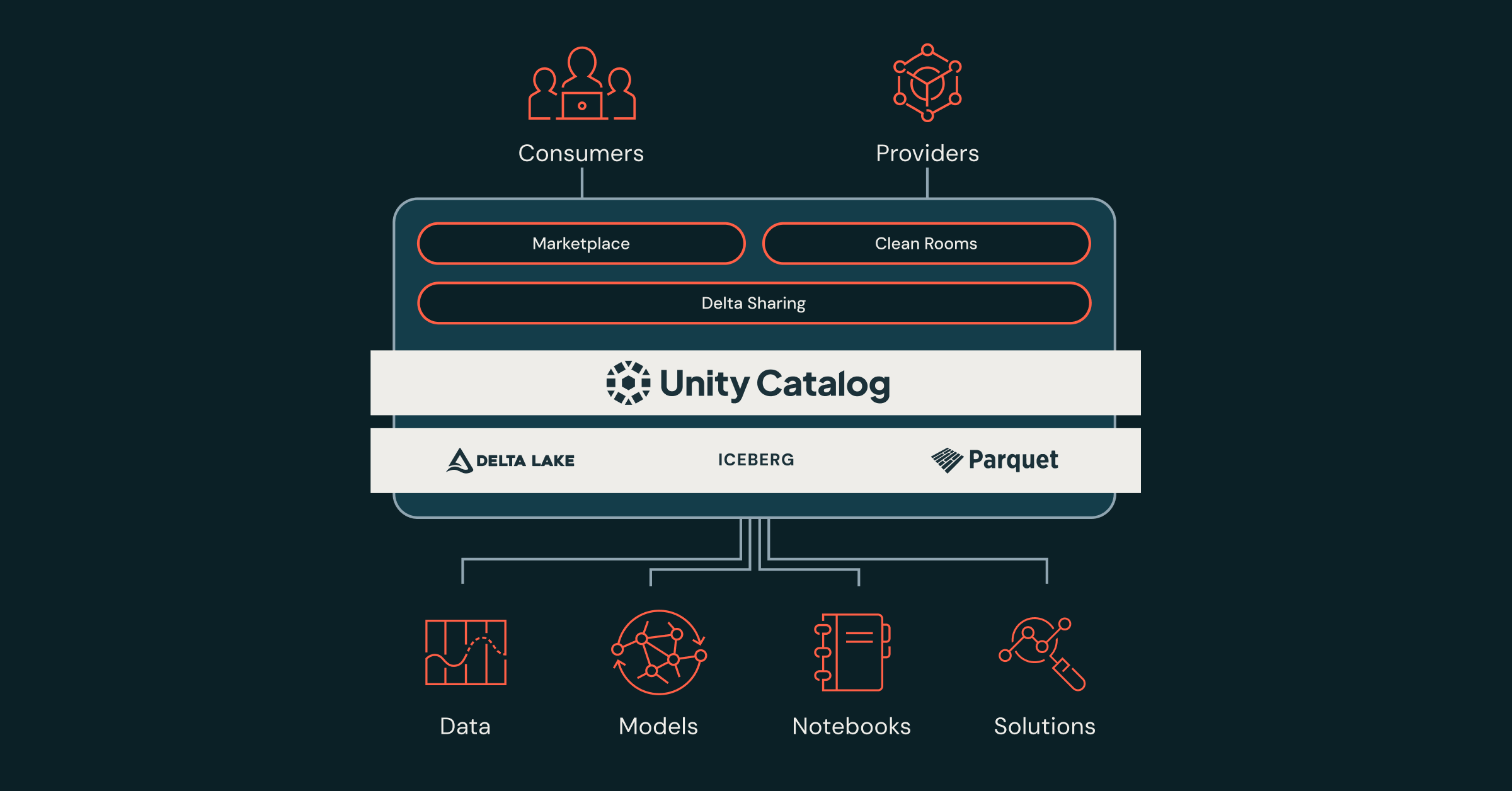
Summary
- Delta Sharing innovations: Delta Sharing to Iceberg Clients, Delta Sharing Network Gateway, and Delta Sharing with ABAC.
- Marketplace and Delta Sharing ecosystem expansion with leading data partners, including SAP, S&P Global, Magnite, IAS, Moody’s, SambaTV and Crunchbase.
- Clean Rooms enhancements: Privacy-centric identity resolution, support for multi-party collaborations, and advanced controls over approvals.
At Databricks, we aim to make data and AI accessible to everyone, not only within a single organization but across organizational boundaries. Three components of the Databricks Platform are critical to making sharing and collaboration possible. First, our Delta Sharing open protocol allows customers to securely share data and AI assets across clouds and platforms, breaking down silos and driving innovation. Second, the Databricks Marketplace serves as an open platform for all your data and AI needs, featuring leading partners that provide data and AI assets natively within Databricks. Finally, Databricks Clean Rooms enable privacy-centric collaboration for businesses across any cloud platform.
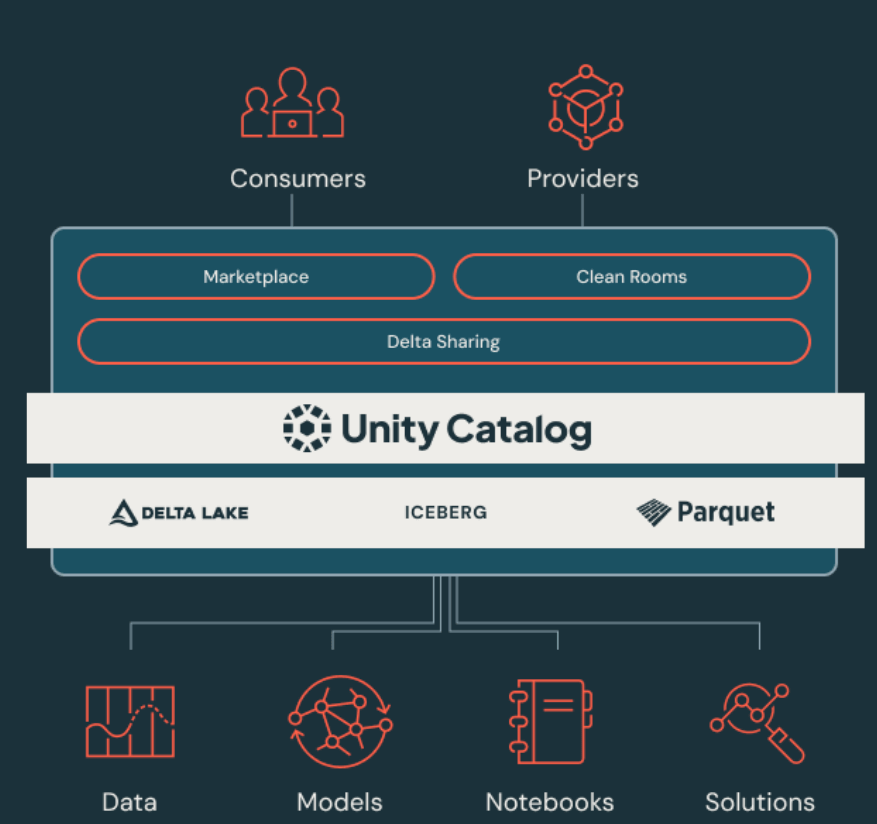
At Data + AI Summit 2025, we're advancing how organizations share and collaborate on data and AI. With new features and an expanded partner ecosystem, we’re making it easier to share assets securely and work across platforms. Here's what’s new and why it matters across Delta Sharing, Clean Rooms and Marketplace.
Delta Sharing innovations for interoperability and simplification
Delta Sharing enables secure, cross-platform data sharing regardless of cloud, platform, or region. We’re expanding data sharing capabilities with new features that support broader use cases and reduce the complexity of data exchange across different ecosystems.
External data collaboration with Apache Iceberg™ and Delta Sharing
Organizations today often work with multiple table formats — most commonly Delta Lake and Apache Iceberg. Databricks offers the most comprehensive, end-to-end support for data sharing, no matter which format you use.
With Delta Sharing, you now get full Iceberg interoperability:
- Cross-platform sharing to any iceberg-compatible engine, allowing data providers to reach their customers across platforms like AWS or Snowflake.
- Data providers can now use Delta Sharing to share Iceberg Tables just like any other UC asset both within Databricks and beyond (Public Preview)
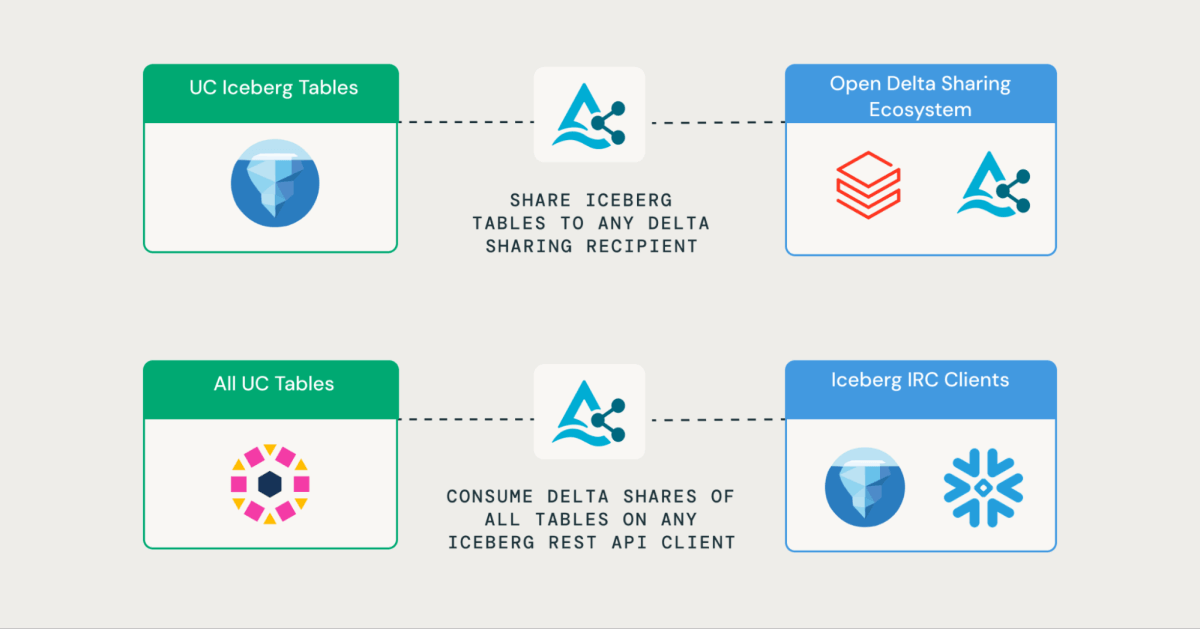
These features make Delta Sharing the widest reaching open protocol for data sharing, eliminating the need for data duplication or file conversion. If you're interested in trying out this feature, sign up for the Private Preview here.
Delta Sharing Network Gateway: Open Lakehouse Sharing with seamless Network Configuration
Data providers want to keep a single copy of their data in an open format - but also want external customers to easily access it live - directly from the source. This approach often created complexity related to firewall rules and network settings. The new Delta Sharing Network Gateway removes that burden. Data providers can now share with recipients with minimal manual network configuration. It supports both customer-managed storage (e.g. ADLS, and S3) as well as Databricks default storage. If you're interested in trying out this feature, sign up for the Private Preview.

Delta Sharing at the lowest TCO: Streaming Tables and Materialized View
Streaming table and materialized view (MV/ST) sharing, which was previously in Public Preview, will become generally available in the next few weeks. This allows data providers to efficiently create and share customer-facing views of the data using Materialized Views and Streaming Tables.
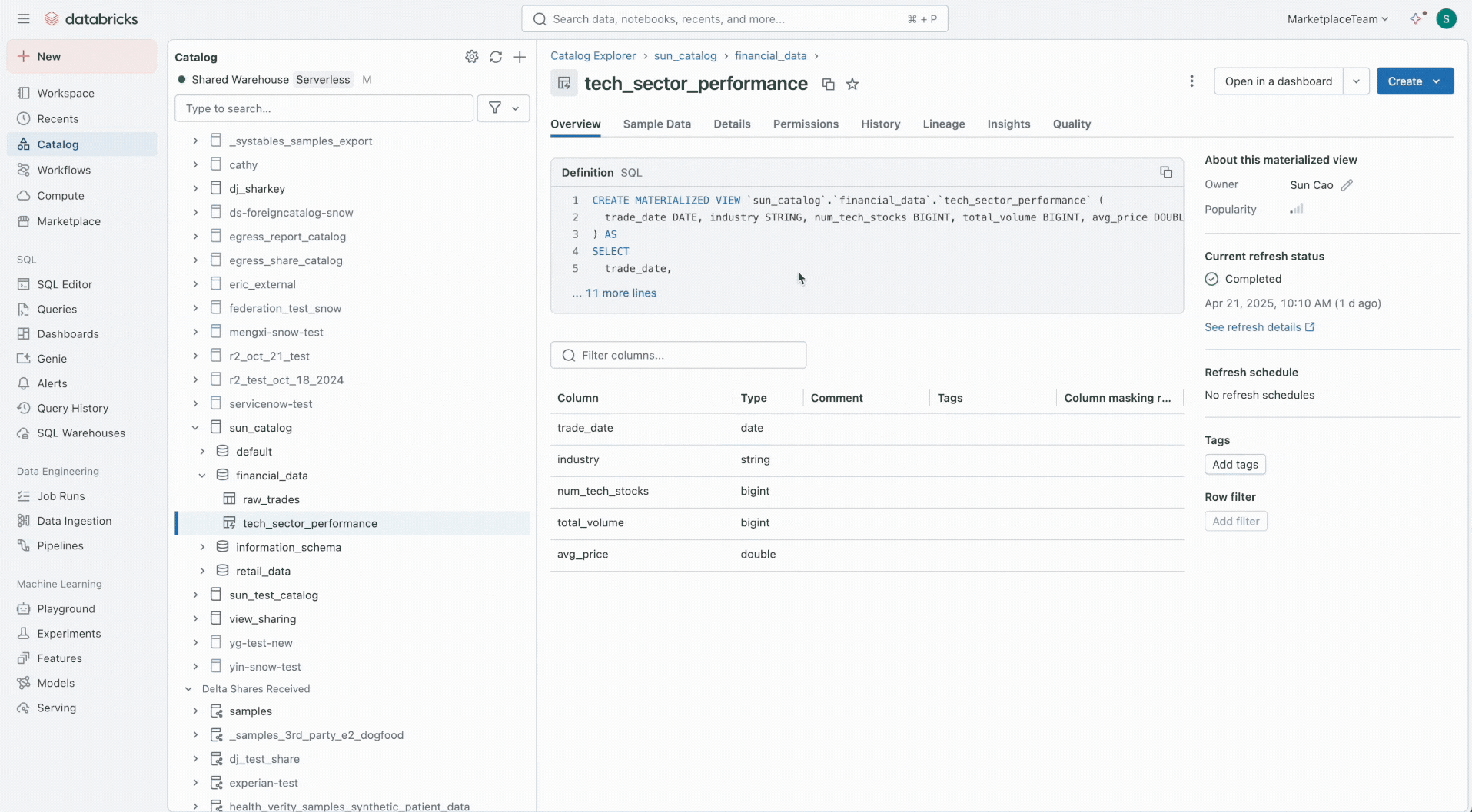
Fine-Grained Governance of Shares using Attribute-Based Access Controls
Delta Sharing's ABAC (Attribute-Based Access Control) support allows providers to securely apply fine-grained data access policies when sharing data, ensuring sensitive information is protected while enabling broad data collaboration. Recipient can also use ABAC on the received tables, enabling them to govern access to external data within their own organization. The Beta for this feature will be available in the next few months.
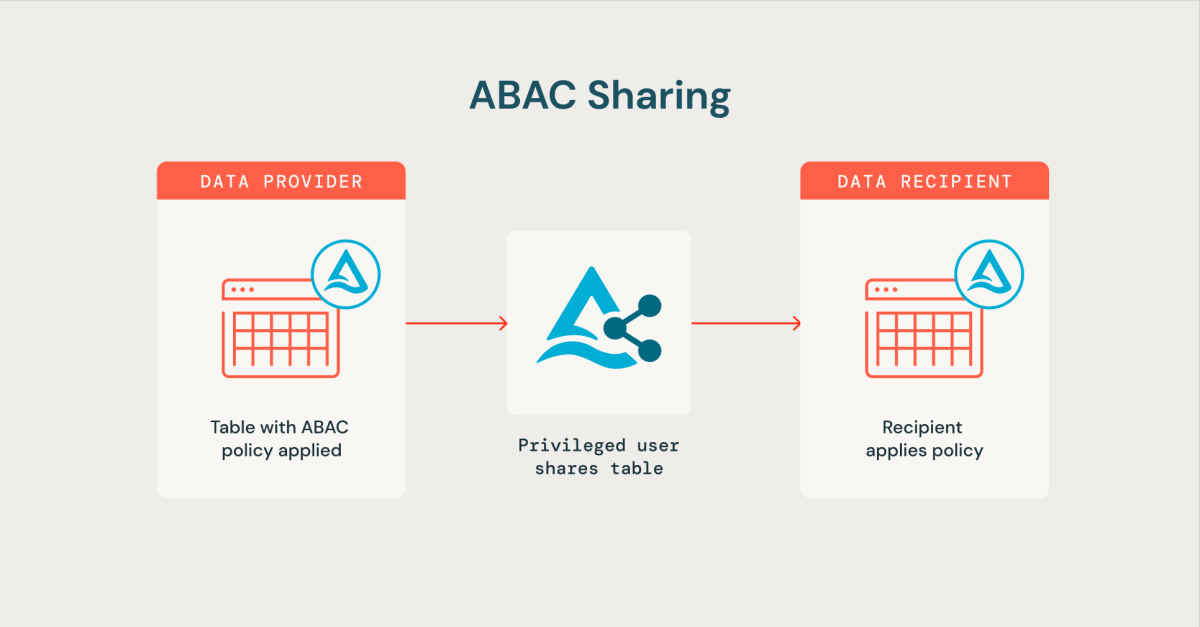
Gartner®: Databricks Cloud Database Leader
OIDC Token Federation
We are excited to introduce the General Availability of OIDC Token Federation for Enhanced Delta Sharing Security. Data providers can securely share data with non-Databricks users on any computing platform who prefer to authenticate using a custom Identity Provider (IdP), such as Azure Entra ID or Okta.
Clean Rooms: Privacy-Centric Collaboration, Now on GCP and Expanded Features
Powered by Delta Sharing, Databricks Clean Rooms let businesses collaborate securely with partners and customers, without exposing raw data. At DAIS 2025, we’re introducing three major updates:
Privacy-centric identity resolution: When joining disparate data assets, customers often need to convert PII data into a common shared identifier to ensure that related entities across datasets can be linked, even without exact matches. By enabling identity resolution to occur in place within Databricks Clean Rooms, organizations can securely collaborate without needing to expose raw personal data to third-party identity providers.

Now Available on Google Cloud (GA): Customers can now deploy Clean Rooms on GCP, enabling secure collaboration with partners across AWS, Azure, and other platforms. This supports our approach of “any cloud, any platform” collaboration, without requiring data movement.
Multi-party Collaboration: Clean Rooms now support multiple collaborators in a single room. Previously, each clean room was effectively two-party only; now you can invite up to 9 other organizations (i.e., 10 total). These collaborators can be on different clouds, regions, or data platforms, yet work together in one central environment. This unlocks “Any scale, any trust level” and supports many-to-many collaborations with fine-grained access controls and orchestration.
Run your own Notebooks: Clean Rooms now support secure self-runs, allowing collaborators to upload and run their own notebooks for the first time, only with explicit approval from other clean room participants. Previously, notebooks could only be run by the other party, with approval implied by clicking the run button.
Read this blog for more information and in-depth demos.
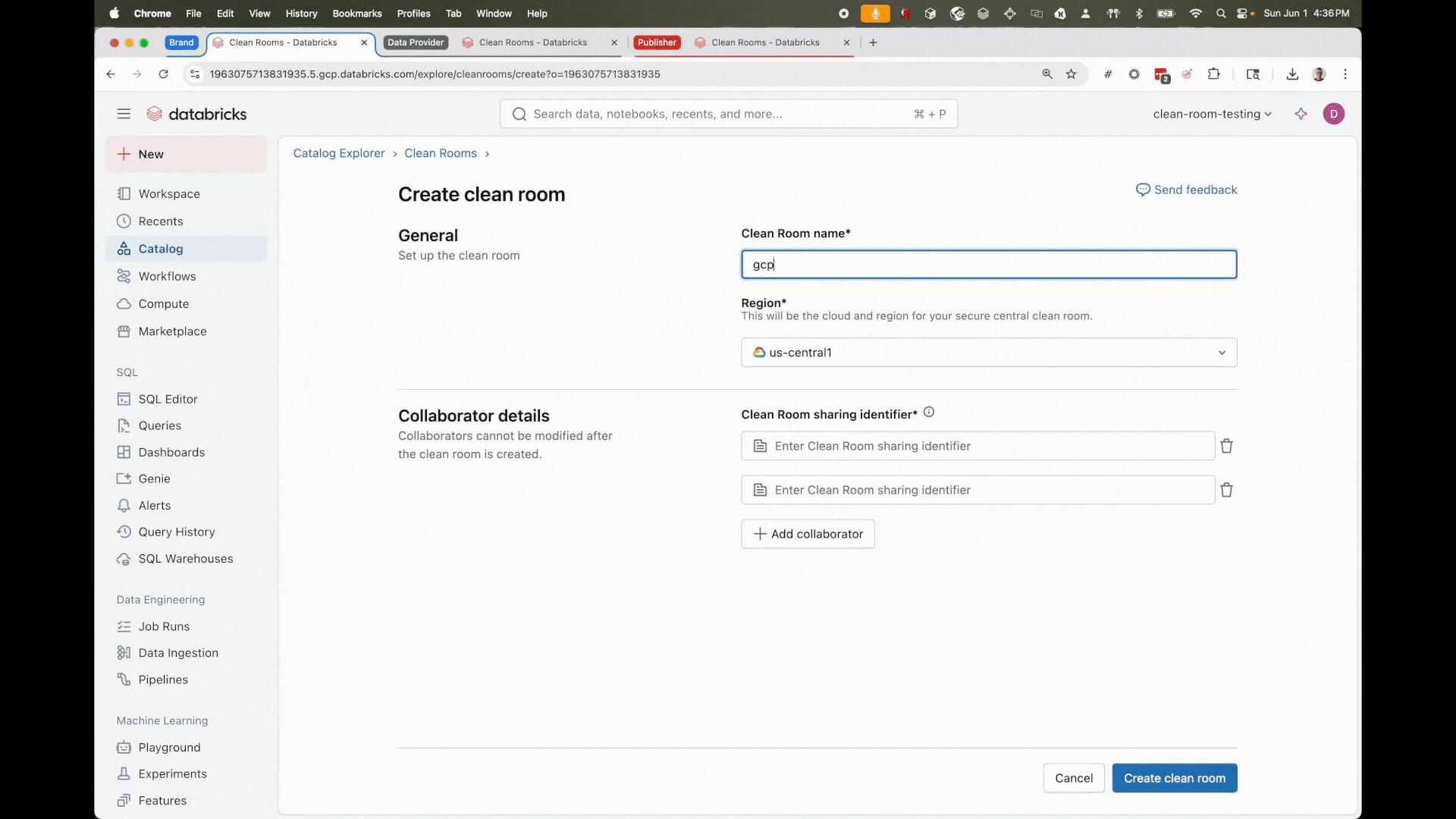
Databricks Marketplace and Sharing Ecosystem Expansion
Databricks is broadening the reach of its open ecosystem by welcoming partners to build data sharing solutions, expanding existing Built on partnerships for new capabilities, and advancing technology partnerships that help joint customers seamlessly share between platforms.
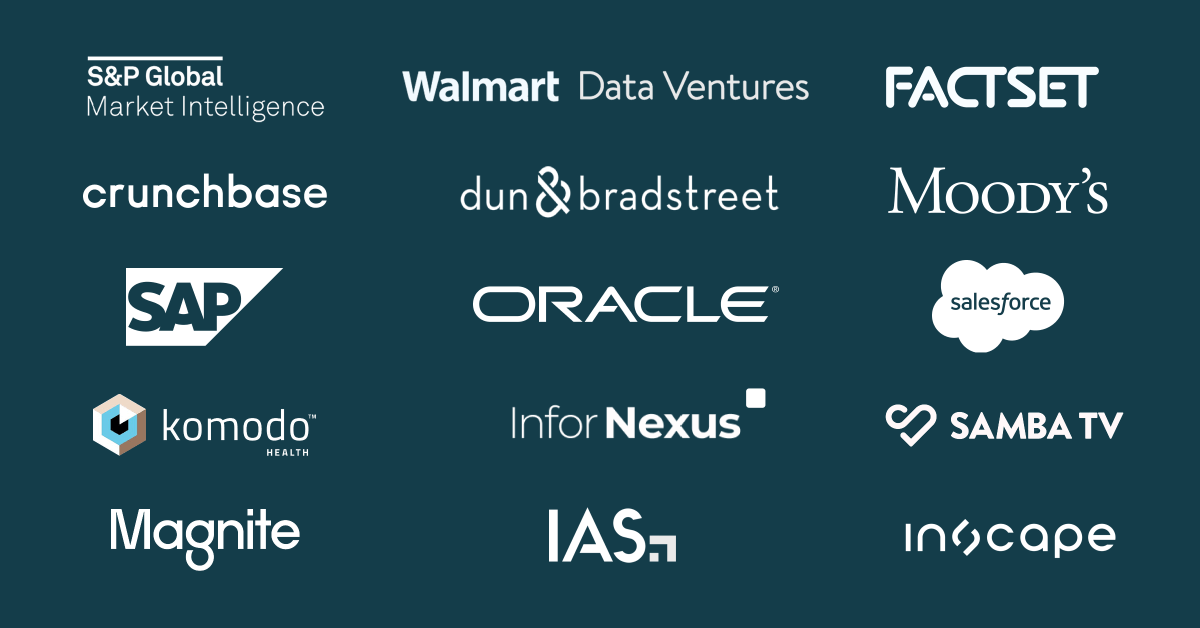
At the Data and AI Summit 2025, we’re proud to highlight several new partners joining the growing ecosystem:
- SAP (coming soon): Customers can access enterprise data from SAP’s Business Data Cloud (BDC) directly within Databricks, without third-party ETL tools. This integration uses Delta Sharing to provide live data access with no data replication, reducing time and cost.
- S&P Global Market Intelligence: S&P Global Market Intelligence now offers its Capital IQ Pro datasets on the Databricks Marketplace via Delta Sharing. Users can access financials, estimates, ESG data, and more—instantly, securely, and without data movement.
- FactSet: A trusted source of financial intelligence, FactSet brings high-quality economic, market, and company-level data to the Databricks Marketplace, enabling investment and risk professionals to accelerate time to insight across use cases.
- IAS (coming soon): Integral Ad Science (IAS) now offers media quality datasets on Databricks Marketplace via Delta Sharing. Databricks users can leverage IAS insights for better targeting, optimization, and performance, without duplicating or moving data.
- Infor Nexus: Infor Nexus now offers supply chain business network datasets through Delta Sharing, enabling companies to combine enterprise and network data to better align planning and operations with current realities.
- Magnite (coming soon): Magnite, the world’s largest independent sell-side ad platform, now offers advertising activation on the Databricks Marketplace via Delta Sharing, enabling publishers and advertisers to securely share, activate, and measure data across every screen.
- Crunchbase: Crunchbase provides predictive intelligence and historical data on private companies, giving investors, analysts, and dealmakers the first-mover advantage to discover and act on private market opportunities.
- SambaTV (coming soon): Samba TV, a global leader in AI-driven media intelligence, is now available on Databricks Marketplace through Delta Sharing, making it easy for brands, agencies, and publishers to access real-time insights, audience targeting, and measurement tools powered by first-party TV and web data—helping them reach and engage audiences across every screen with precision.
The Future of Data Collaboration
At Databricks, we remain committed to setting the standard for open data collaboration , enabling organizations to share any asset with anyone on any platform. As we continue to innovate with Delta Sharing, Clean Rooms, and the Databricks Marketplace, our goal is to make it easier than ever to collaborate on data securely and at scale.
What’s Next?
We’re excited for you to explore these new features and how they can transform the way your organization collaborates on data.
Never miss a Databricks post
What's next?

Product
November 21, 2024/3 min read

